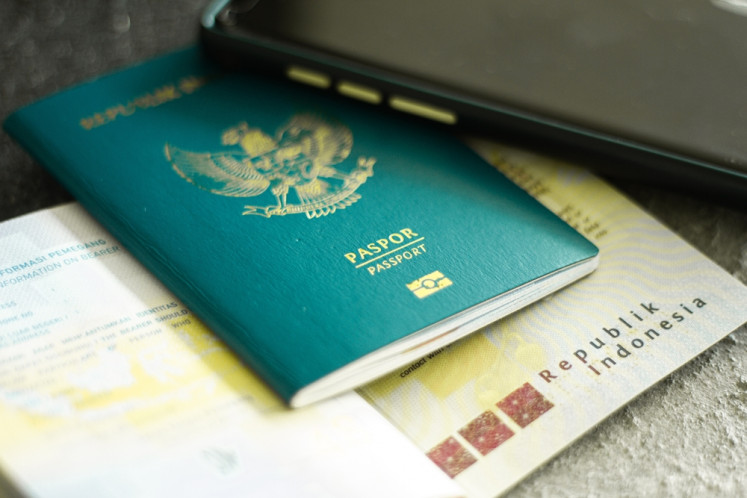US, RI sign infrastructure financing deal
The United States Treasury Secretary Steven T. Mnuchin and Indonesian Finance Minister Sri Mulyani Indrawati have signed an agreement to bolster cooperation between the two countries on infrastructure development.
Change Size

U
nited States Treasury Secretary Steven T. Mnuchin and Indonesian Finance Minister Sri Mulyani Indrawati have signed an agreement to bolster the two countries’ cooperation on infrastructure development.
The Cooperation Framework to Strengthen Infrastructure Finance and Market Building, signed by the ministers remotely on Friday, is designed to support infrastructure development through market-oriented, private-sector investment.
Under the new framework, both countries will address regulatory, market and legal barriers to private-sector investment by focusing on the development of financial instruments, project financing, the local debt market and capital markets.
“Infrastructure development is critical to economic growth and long-term recovery from the effects of COVID-19. This framework supports economic growth and our shared goals to meet infrastructure needs,” said Mnuchin in a statement released by the US Embassy in Jakarta on Friday.
The working group established under the agreement will hold its first meeting virtually on Sept. 22 and 23.
President Joko “Jokowi” Widodo has made the development of basic infrastructure, such as roads, airports, seaports and telecommunication, one of his top priorities since 2014.
During his annual address to the House of Representatives on Aug. 14, Jokowi vowed to allocate Rp 414 trillion (US$27.7 billion) of the 2021 state budget draft for infrastructure development, focusing on economic recovery, the provision of basic services and connectivity improvement. The proposal marked a 47 percent increase from the 2020 state budget.
“Infrastructure spending [in 2021] will be directed toward strengthening our digital infrastructure, increasing our logistical and connectivity efficiency and labor-intensive infrastructure projects that support tourism and industrial zone development,” the President said.
Previously, Singapore-based infrastructure investment advisory group Infrastructure Asia (IA) suggested that the Indonesian government should focus on making infrastructure projects in the country less risky to make them more attractive to foreign investors during the pandemic.
“There is not currently a shortage of liquidity at the international level. However, the issue is how to refocus on opportunities and make them attractive to the international private sector so investors come in and contribute to economic growth,” said the advisory group's executive director, Seth Tan.
He added that a well-established consortium of investors preferred low-risk infrastructure projects over highly profitable ones and that governments should seek to attract those types of investors rather than those seeking to gain high profits at the cost of certainty.
Tan said that Indonesia had shown improvement in its efforts to lower the risk of its infrastructure projects through schemes like viability gap funds (VGF) and public-private partnerships (PPP), which he expected to help attract foreign investment despite not being highly profitable.
The VGF is a government subsidy used to partially finance infrastructure construction to boost a project’s financial feasibility.
Besides lessening the risk of its projects, Tan added, the Indonesian government should focus its infrastructure development push on public health, waste management, urban development, logistical connectivity and digital connectivity, as those areas were needed to generate a higher level of economic growth, particularly in the post-COVID-19 pandemic era.
The National Development Planning Agency (Bappenas) has estimated that the country will need $429.7 billion in infrastructure investment, equal to 6.1 percent of the gross domestic product (GDP), between 2020 and 2024.
However, the government may only be able to finance 30 percent of the projects using the state budget, according to Public Works and Housing Ministry financing strategy director Herry Trisaputra Zuna, adding that it expected additional funds to come from the private sector and non-conventional sources of funding.
The ongoing global health crisis has caused a decline in foreign direct investment (FDI) in Indonesia for the second consecutive quarter this year. It fell by 6.9 percent year-on-year to Rp 97.6 trillion in the April-June period.









